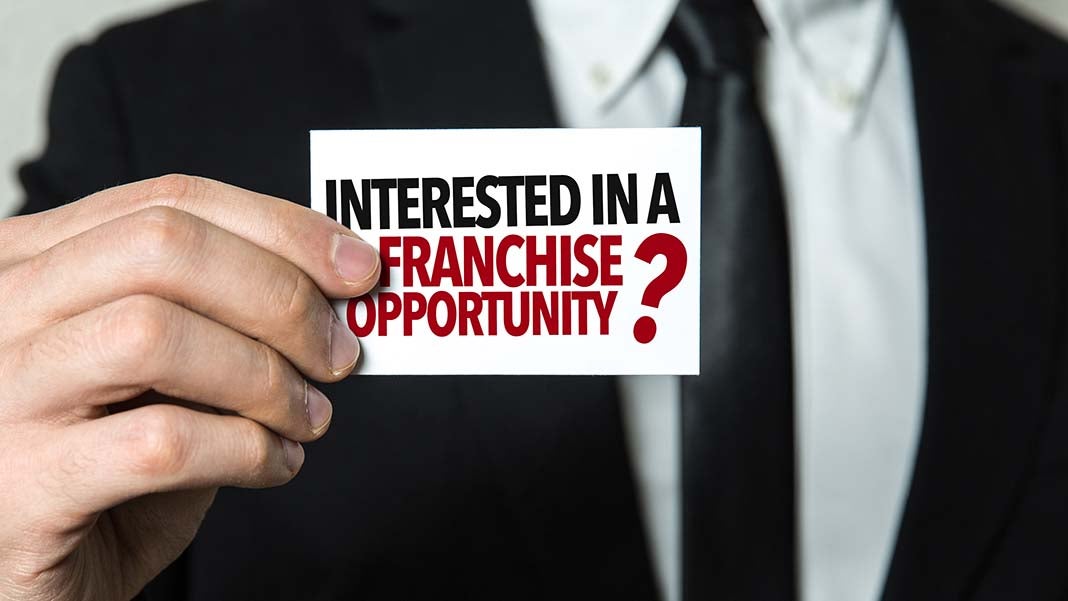Choosing a Franchise Opportunity: What to Ask a Franchisor
By: Bill Bradley

Choosing a franchise opportunity is much like buying a new car; it’s a big investment that requires its fair share of research.
Although a two-seater Porsche with all the upgrades is everything you’ve always dreamed, it likely won’t have enough room for your family of five. And while an SUV may fit your whole family, it may not have the same features you’re looking for in a vehicle. Sometimes, something you never imagined for yourself may be exactly what you need…like a minivan.
Let’s put it into perspective.
John Falvey, former Goldman Sachs, Wall Street broker turned proud franchise owner of DUCTZ, a ducts cleaning service for heating and air-conditioning systems, told Inc.com that while the job may not be glamorous, it was the right choice for him. He said, “I’m crawling around an attic sweaty and dirty. It’s not sexy, but if it makes me money, maybe it’s not that bad.”
It’s the same when choosing a franchise opportunity. Just because it’s a big brand or the concept may seem perfect from the outside, it’s vital to look inside or “under the hood” before committing. Research everything from current and past franchisee satisfaction to franchisor training and support; the more you know, the better.
David Omholt, president of franchise consulting firm The Entrepreneur Authority, told Inc.com, “It takes a good two to three months of pretty focused energy for a franchisee to do adequate due diligence and come to some point of clarity.”
But how do you know what to look out for? If you’re having trouble narrowing your choice, don’t worry; America’s Best Franchises has got you covered.
What to Ask a Franchisor
Start by looking into what kind of training and support they offer franchisees. It’s a franchisor’s job to guide your success, so you want to be sure they have the systems in place to do so.
Here’s a list of questions to ask:
- Do they offer business coaching?
- Do they provide marketing and advertising support?
- Do they work to improve operational processes?
- Does their teaching style match yours?
- Do they offer ongoing support after the grand opening?
Next, research the corporate executive team. They are the people who make the rules, and you could potentially interact with them on a daily basis. So, it’s important to be sure they are people you feel you can build a relationship with.
Here are a few questions to keep in mind:
- Is face-to-face interaction important to you? If so, how much will you get?
- How available are they to franchisees?
- How involved will they be in your business operations?
- Do they have a high track record of success?
- How long have they been in their position and what is their background experience?
Franchise Marketing Systems’ vice president, Alan George, told Business News Daily to also ask about the franchisor’s sales approach, whether there’s enough available business in your marketplace, and if their marketing and advertising efforts will work in your territory.
Oh, and remember to explore an exit strategy, too. Find out if the franchisor offers a succession program.
Understanding the Franchise Disclosure Document (FDD)
A Franchise Disclosure Document (FDD) is meant to protect potential franchisees by giving them pertinent information about the franchisor to make an informed decision. The International Franchise Association gives a general breakdown of each item included in a typical FDD here.
The Federal Trade Commission requires franchise candidates receive the FDD at least 14 days prior to signing the contract. This gives you the time to give it a thorough evaluation. Trust us; it will take you some time because most FDDs run between 100 and 150 pages. The FDD covers everything from the initial franchise and royalty fees to rules and restrictions.
Items 1 through 4 explain the franchisor’s experience and whether they’ve ever been involved in bankruptcies or litigation relevant to the business. Occurrences like this can indicate franchisee dissatisfaction with the franchisor and the franchise system.
Items 19 and 21 give you an understanding of financials, including how much you’ll be paying a franchisor before and after you open, projected performance numbers and a general overview of how current units are doing.
Item 20, and perhaps the most important piece of the FDD, includes a list of existing and past franchisees, as well as their contact information. One of the smartest things you can do before making things official is making a point to speak with franchisees. Find out what they do and don’t like about the business and concept. Ask current franchisees why they love it and former franchisees why they left. Find out as much information as possible. And don’t be afraid to get specific by asking targeted questions.
When all is said and done, doing your fair share of due diligence is the best thing you can do for yourself. Remember, sometimes looking under the hood isn’t enough; you have to understand everything about the engine and most importantly, yourself. Get clarity on your goals and needs to see if they align with your franchise of choice.
Now, what are you waiting for? Start researching your next big business opportunity right here at America’s Best Franchises.












